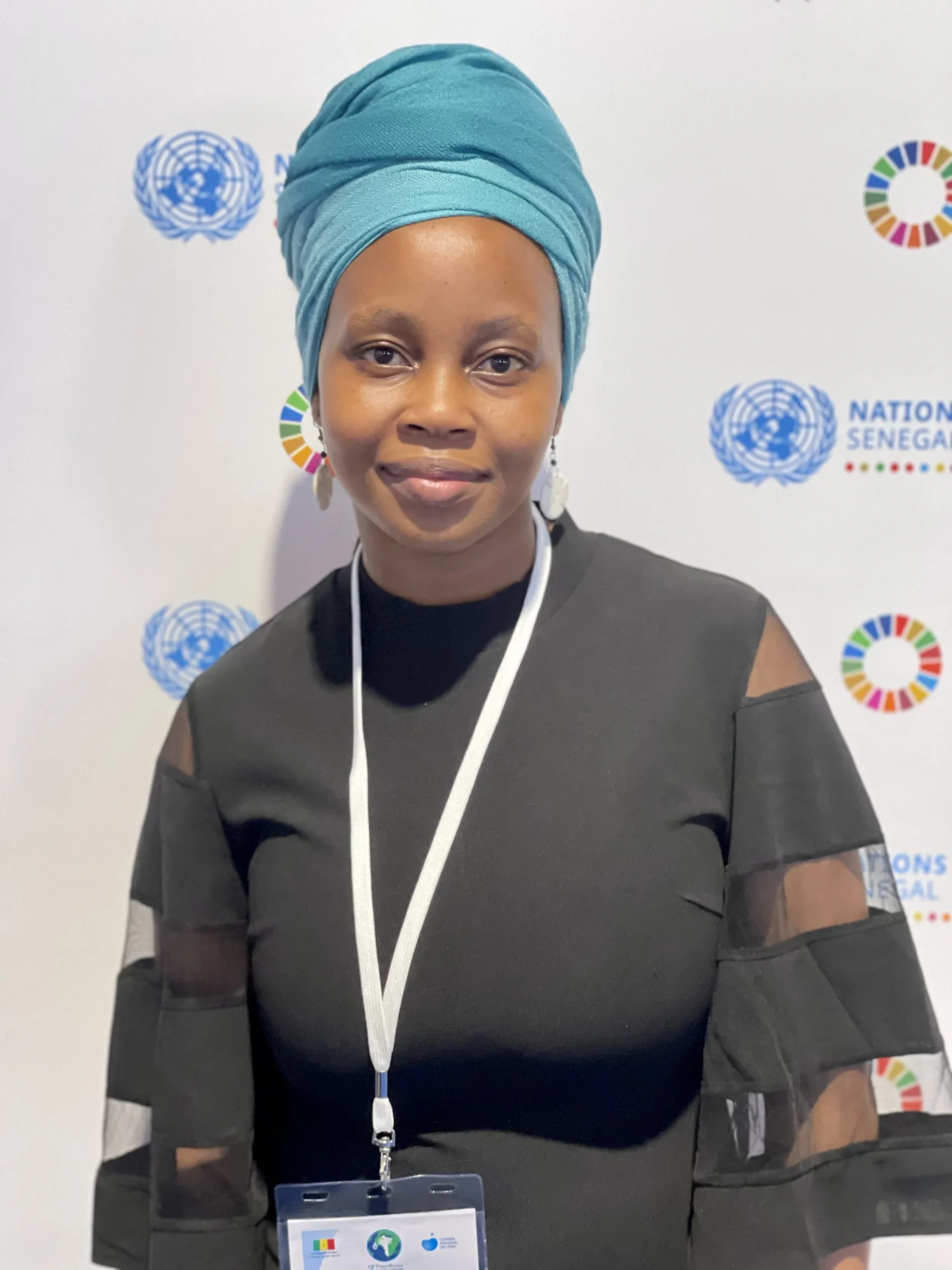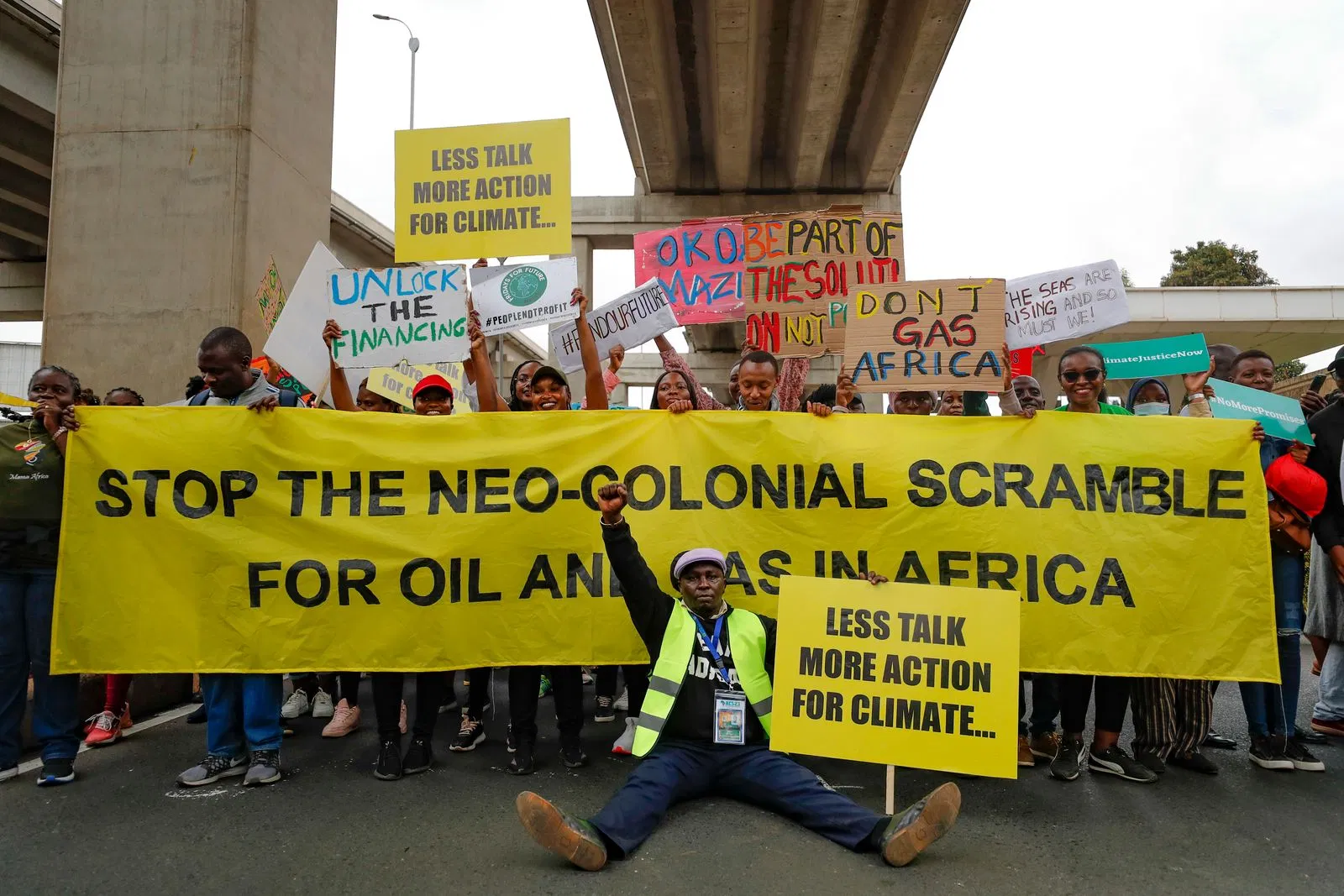Feminist Reflections on the WB and IMF 2025 Springs: Financing Africa’s Future Without Sacrificing Gender and Energy Justice
by Karabo Mokgonyana, Power Shift Africa
The 2025 World Bank and International Monetary Fund (IMF) Spring Meetings, held in Washington D.C., unfolded against a backdrop of escalating global inequality, tariff wars, climate denialism, escalating debt burdens, mounting ecological crises, and increasingly polarized political debates about Diversity, Equity, and Inclusion (DEI).
While the Meetings presented new financing strategies and ambitious reforms, a feminist reflection demands that we critically interrogate who benefits, who is left behind, and whose voices are shaping the future of global economic governance. For those of us committed to feminist economic justice and just transitions, this moment is a stark reminder: global financial governance must be radically transformed if Africa is to realize a just energy transition that serves people and planet – not profit.
The Global Backlash Against DEI and its Implications for Gender Equality
A disturbing trend has been the intensifying political assault on DEI initiatives across the U.S. In several states, laws have been introduced to ban or severely limit DEI programs in universities, government agencies, and even private corporations. This regressive wave, fueled by nationalist and conservative ideologies, threatens to undermine decades of hard-won progress on gender equality and racial inclusion.
Given the World Bank’s headquarters in Washington D.C. and the dominant influence of U.S. politics on international financial institutions, it is critical to assess the potential spillover effects. While the Bank operates under internationally negotiated mandates, U.S. political pressure — especially from influential donors and Congress — can shape priorities and funding allocations. Feminist advocates must remain vigilant: there is a risk that gender and inclusion policies could face budgetary cuts, deprioritization, or political interference.
Nevertheless, the World Bank’s existing frameworks — including its Gender Strategy 2016–2023 (recently updated for 2024–2030) and its Environmental and Social Framework (ESF) — mandate gender mainstreaming across all operations. For example, the Gender Tag system requires that projects meaningfully integrate gender dimensions to receive full approval. Thanks to these institutional safeguards, the backlash may have limited immediate impact, but it is vital that civil society continues to pressure the Bank to defend and strengthen its commitments to gender equality, especially in the Global South.
Climate Finance: The Mirage of a Just Energy Transition
The just energy transition has become a buzzword, yet the financing to make it a reality in Africa remains elusive. Africa contributes less than 4% to global emissions, yet bears the brunt of climate impacts – from cyclones in Mozambique, to drought in the Horn of Africa, to flooding in Nigeria. The continent also holds immense renewable energy potential: Africa is home to 60% of the world’s best solar resources, yet receives only 2% of global clean energy investment, according to the International Energy Agency (IEA).
The Spring Meetings are expected to highlight new climate finance pledges, including capital injections into the World Bank’s climate trust funds. But history tells us to be skeptical. At COP26, the Global North pledged $100 billion annually in climate finance by 2020. That target has yet to be met, despite deciding on a $300 billion at COP29. Worse, over 70% of climate finance disbursed to the Global South has been in the form of loans, not grants, exacerbating debt vulnerabilities.
A feminist lens demands that climate finance must be non-debt creating, locally led, and explicitly gender-responsive. In Senegal, women in rural communities are leading cooperative solar energy projects that reduce reliance on fossil fuels while creating jobs and improving energy access. Yet such initiatives are consistently underfunded and excluded from large-scale investment frameworks driven by the World Bank and IMF.
Gender Inequality: Still a Blind Spot in Economic Policy
Despite rhetorical commitments to gender equality, both the IMF and World Bank continue to treat gender as an afterthought in their economic models. The IMF’s Gender Strategy, launched in 2022, has been widely criticized for treating women as untapped economic resources rather than rights-holders. It frames gender equality in terms of market efficiency, not justice.
Yet in reality, women in Africa face profound structural barriers: 62% of African women are employed in the informal economy, without social protection or labour rights. Women carry three to five times more unpaid care work than men. During the COVID-19 pandemic, this burden increased exponentially, pushing many women out of the labor force entirely. And when energy is inaccessible – still the case for 600 million Africans – it is women who walk long distances to fetch firewood, who cook over open flames, and who suffer the health consequences.
A truly feminist energy transition must confront these intersecting inequalities. In South Africa, women-led cooperatives are installing off-grid solar systems in townships and rural areas, improving livelihoods while resisting the male-dominated, corporate capture of the green economy. Yet such models are rarely scaled or prioritized in development finance pipelines.
The False Binary of Growth vs. Equity
The Bretton Woods Institutions continue to promote a GDP-centric view of development. But this model fails to account for environmental degradation, social reproduction, and community well-being. Feminist economists have long argued for alternative indicators – such as the Care Economy Index, Time-Use Surveys, and Social Wealth Metrics – to guide policy. These are not abstract ideas; they are essential tools to design just economies that reflect the lived realities of African women and girls.
In Rwanda, time-use data revealed that women spend an average of 4.5 hours daily on unpaid care, compared to just 1.5 hours for men. This data informed the government’s investments in community childcare centres and water infrastructure, which reduced women’s unpaid labour burden and enabled greater workforce participation. But such policy shifts are rare, and often ignored in macroeconomic frameworks shaped by the IMF and World Bank.
New Opportunities: The World Bank’s Emerging Energy Strategy
One important announcement was the World Bank’s work towards a new Energy Strategy, expected to be finalized in 2026. This Strategy aims to align the Bank’s energy investments with the goals of the Paris Agreement while ensuring energy access for all.
This presents a critical opening for feminist engagement. Energy development is not gender-neutral:
- In Sub-Saharan Africa, over 70% of women still rely on traditional biomass for cooking, exposing them to health risks and time poverty.
- According to IRENA, closing the gender gap in renewable energy employment could boost GDP by up to 1.2% in some African countries.
Feminists must demand that the new Energy Strategy:
- Prioritizes decentralized renewable energy solutions that empower rural women.
- Includes women-led businesses in the clean energy value chain.
- Integrates gender targets into energy finance and project design.
There is a real opportunity to shift away from masculine, centralized models of infrastructure development towards community-centered, gender-transformative energy systems.
Toward a Feminist Global Financial Architecture
What would a feminist alternative look like? First, we must dismantle the myth of neutrality in global finance. Economic policy is not apolitical; it is a site of struggle. A feminist global financial architecture would:
- Ensure equitable voting power at the IMF and World Bank
- Cancel illegitimate and unsustainable sovereign debts
- Prioritize grants over loans in development finance
- Redirect subsidies from fossil fuels toward community-led renewable energy
- Require gender impact assessments for all macroeconomic programs
- Recognize, reduce, and redistribute unpaid care work
- And place African feminist voices at the centre of policy design and implementation
Institutions must be held accountable not only to shareholders, but to the people whose lives they shape. This requires a reparative approach that acknowledges historical injustice and commits to redistributive justice.
Conclusion: Feminist Futures Are Possible – If We Fight for Them
As the Spring Meetings unfold behind closed doors, let us remember that the most transformative ideas often come from the margins. From Ugandan women resisting oil pipelines, to Namibian feminists fighting resource extraction, to grassroots cooperatives building renewable futures, African women are already modelling the just economies we need.
The IMF and World Bank have spent eight decades breaking promises. It is time to break the silence, to disrupt the status quo, and to reclaim economic policymaking as a feminist, decolonial, and ecological project. We are not asking to be included in their model – we are demanding a new model entirely, one where economies serve life, not capital. Let this be the year when feminist reflections no longer sit at the sidelines of economic debates – but reshape them entirely.

Karabo Mokgonyana, Renewable Energy Campaigner at Power Shift Africa


